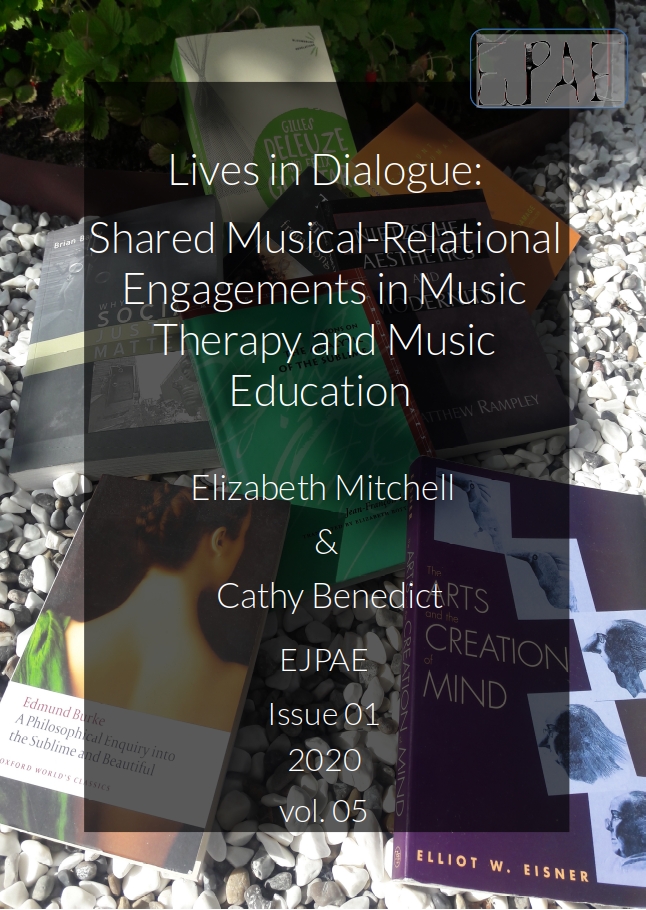Lives in Dialogue: Shared Musical-Relational Engagements in Music Therapy and Music Education
DOI:
https://doi.org/10.5281/zenodo.3935805Keywords:
Music education, music therapy, music-centered, transdisciplinary, relationalAbstract
Music therapists and music educators, within their distinct workplaces and often holding distinct mandates, share a common imperative to advocate for the value of music within society. This paper’s authors—a music therapist and a music educator—engage in “genuine dialogue” (Buber, 1947/2002) as a “primary source of understanding” (Garred, 2006, p. 105) in exploring the purpose of music within their respective disciplines. Through interrogating common conceptions of music, music education and music therapy, they propose that the theoretical and practical points of intersection between their fields are far broader in potential scope than is typically assumed, particularly within the current North American interdisciplinary discourse.
Specifically, this paper’s authors present music-centered theoretical perspectives from the field of music therapy (Aigen, 2014) as providing a meeting place for transdisciplinary dialogue and a renewed vision for the purpose of musical engagement, a fundamentally relational act. This perspective includes recognition of music’s “para-musical” affordances, a concept that challenges overly simplistic distinctions between “music itself” and its “nonmusical benefits” (Ansdell, 2014). This perspective reminds the music educator that it would be remiss to neglect the personal and relational affordances of the medium, while imploring the music therapist to resist reducing music to a mere tool for achievement of a nonmusical outcome, thereby neglecting the medium—the music—itself.

Downloads
Published
Issue
Section
License
EJPAE provides immediate open access to all its published content. Users do not need to register or pay to read content.
https://creativecommons.org/licenses/by/4.0/
Authors of content published in European Journal of Philosophy in Arts Education (EJPAE) retain the copyright to their works. Content is free to be used by anyone as long as you "[...] give appropriate credit, provide a link to the license, and indicate if changes were made. You may do so in any reasonable manner, but not in any way that suggests the licensor endorses you or your use." and "No additional restrictions — You may not apply legal terms or technological measures that legally restrict others from doing anything the license permits." (from the Creative Commons licence agreement)
EJPAE does not charge any author or publication fees.
Authors are encouraged to deposit the final published version of their article for self-archiving (author's personal website) and/or archiving in an institutional repository immediately upon publication.




